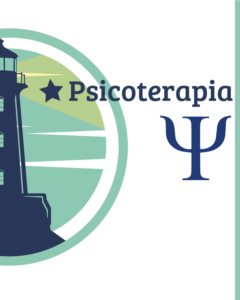
What is psychotherapy, again?
It’s the practical and clinical use of the scientific knowledge of Psychology, which is a combination of the Greek words psykhē and therapeuein meaning mind and cure, respectively, which has been primarily referred circa 1890. So, psychotherapy deals with the psychological problems, as part of the mental health field assuring pertaining psychological interventions aiming the overall understanding, the means for diagnosing and the assertive treatment of everything related to the psykhē.
Psychology was born into the reductionist scientific comprehension of the so-called traditional medicine, but it has been embracing new ways of viewing science, revising its holistic perceptions of the bio-psych-social-spiritualist human being, and considering a more quantic approach towards us. Following this path, it validates not only the person’s complaint at hand, but also takes into consideration the healthy and functional side that promotes the state of well-being, the inner strength and wisdom that lies within ourselves. Consequently, the psychology science as it is, develops wider possibilities in facilitating the individuals’ and groups’ processes beyond the genetics determinism, displaying psychotherapies, techniques, and an array of resources provided by the vast research from the positive, transpersonal and energy psychologies; from the Buddhist practices; from the ancient naturalist oriental medicine, and all the interdisciplinary knowledge and resources, for instance.
Psychotherapy is a strong ally for the non-stop human process of self-actualization, regardless of what reason motivates someone to seek assistance and help – sometimes it’s an extreme discomfort that persists throughout life, other times it seems cheer “curiosity”. The support must be humane for the individual as its wholeness and never for its identity dissected parts. We are unique, infinite, and incredible beings to be hidden behind a diagnosis, to be accommodated in a difficulty or to have our entire existence reduced to anything.
Our place is not in suffering, but in health and well-being – not as depicted in the media, but the possible and real day by day we build consciously. Psychotherapy is for anyone who desires to live a harmonious life. It’s real.
Person-Centered Approach
“We cannot change, we cannot move away from what we are, until we thoroughly accept what we are” – Carl Rogers. We can only change what is seen. So, it’s necessary to see ourselves stripped from the masks we make use of and welcome in acceptance all that is ours. Only then we will be able to implement changes and improve who we are.
The person as the center of its own story is the foundation of the PCA: freedom and autonomy on the way (back) to us. As I usually say: “I will go with you throughout the way, but the footprints on the sand mark your own choices; it is your life after all!
Empathy, congruence, and unconditional positive regard are the pillars of the PCA: understanding and sharing the feeling of the client; being genuine and transparent, and accepting and supporting the client without any conditions. Roger’s perception of the utterly way of being with the client/person had instantly and profoundly resonated with me. I ponder with you and facilitate your unique reflective and insightful process; I warn you if you step into deep waters, hold your hands and help you build up and strength your inner resources.
It’s worth it to do some further research into PCA, Carl Rogers, humanistic psychology, and other approaches, in case you have already experienced or is thinking about undergoing psychotherapy. Feel free to send me a message or an e-mail if you want to ask any questions or have a quick chitchat on psychotherapy on WhatsApp. I do respond!
Academic Education:
- Psychologist degree, 2006 – Nilton Lins University (Manaus, AM).
- Postgraduate, 2008, in Clinical Psychopathology – Cruzeiro do Sul University (São Paulo, SP).
Professional Training:
- Online Therapy, 2019 – Instituto de Terapia Online – on-line course.
- Mindfulness for Psychologists, 2023 – Instituto Psico Ciência and Instituto do Emprego e Formação Profissional, Portugal – on-line course.
- EFT – Emotional Freedom Techniques 1 and 2, April 2023 – Quantum Academy – immersive presential course.
- CSI – Character Strengths Interventor, 2023 – Instituto Flow – on-line course.
- Trauma: from its origins to the path of healing, 2023 – Quantum Academy – on-line course.
- EFT – Emotional Freedom Techniques 3 and Matrix Reimprinting Techniques, October 2023 – Quantum Academy – immersive presential course.
- Ágatha Therapist Training, 2024 – Ágatha Evolução – ABRATH
Professional Experience:
- Private Practicioner – since 2007;
- Professor at Paulista University (UNIP) – Manaus Campus – 2009/2012;
- Preceptor at Casa do Albergado and Penitenciária Feminina – Prison system in Manaus, AM – 2009/2011;
- Voluntary work at Casa do Caminho Simão Pedro (charitable organization) – Manaus, AM – 2010/2020.
Availability:
- On-line psychotherapy / On-line therapy.
- 25+ yo.
- Modalities: videoconference, e-mail, and chat.
- Expat Brazilians / Brazilians living abroad / Brazilians in Brazil.
- Foreigners living in Brazil / English speaker foreigners.
- Person Centered Approach.
- EFT – Emotional Freedom Techniques.
- Matrix Reimprinting Techniques.
- Mindfulness in the psychotherapy process.
- Energy Psychology:
○ EFT – Emotional Freedom Techniques
○ Matrix Reimprinting Techniques
○ Vibrational Awareness



